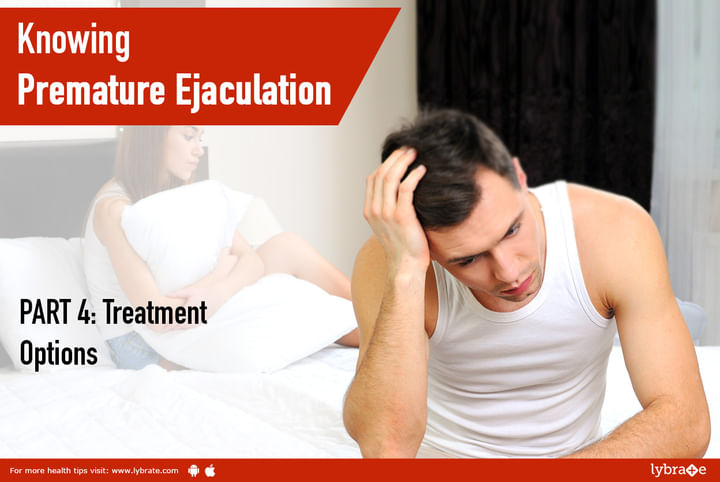Knowing Premature Ejaculation - PART 4: Treatment Options
How to manage premature ejaculation - part 4, medical treatment options
As discussed earlier, premature ejaculation (pe) occurs when a man reaches the peak of sexual excitement and ejaculates before he wants it to happen. When pe interferes with the sexual pleasure of a man or his partner, it becomes a medical problem.
Several factors such as psychological problems (eg. Anxiety), penile hypersensitivity, habituation of quick sex / masturbation, alcohol abuse, hormonal imbalance (e. G. Thyroid problem), and even genetic problems may cause pe.
Medical (allopathic) therapy for pe treatment:
Drugs used for the management of pe reduce sensitivity and anxiety, improve blood flow or even affect some chemical mediators present in the brain. These classes of drugs include local anaesthetics, antidepressants, and phosphodiesterase 5 inhibitors.
Anaesthetic compounds were the first medical treatment proposed for pe management. They were applied topically to the surface of the skin. Lidocaine-prilocaine sprays or creams decrease the sensation of the penis and increase the time taken to ejaculate during vaginal penetration. These sprays / creams are applied 10 to 20 minutes prior to sexual activity. Side effects of topical agents include partial loss of sensation of the penis, absorption in vagina resulting in vaginal numbness and irritation.
Treatment medications include selective serotonin reuptake inhibitors (ssris), which interact with a receptor (5-ht2c) present in brain and increases the production of serotonin. They also help in reducing anxiety and depression associated with pe. Through this mechanism, they prolong the time to reach ejaculation.
Several ssris have increasingly become used as" off-label" for pe. Among the available ssris, paroxetine and dapoxetine are more beneficial with lesser side effects as compared to other ssris. These medications are associated with sexual side effects including decreased fertility and erectile dysfunction. Dapoxetine is a recent ssri which acts quickly and cleared rapidly from the body. Adverse effects with ssris are usually minor and include fatigue, mild nausea, loose stools and sweating. Other side effects may include decreased sexual urge and increased tendency to suicide, especially with long-term paroxetine.
Another potential treatment option for pe are classes of medications which increase the blood flow by dilating the blood vessels of the penile region and prolong the ejaculation time (phosphodiesterase 5 inhibitors). But a headache, dizziness, flushing, body aches associated with them have limited their use in pe.
At present, clinicians need to consider all treatment modalities when evaluating a man with pe, as each patient may respond differently and experience variable side effects. Additional and more effective therapies need to be developed having least side effects.
Ayurvedic therapy for pe treatment:
Vajikaran in Ayurveda is an important treatment modality which increases sexual capacity and improves health. In Sanskrit, vaji means horse, the symbol of sexual potency and performance thus vajikaran means producing a horse's vigor, particularly the animal's great capacity for sexual activity in the individual. Vajikaran therapy reenergizes all the seven dhatus (body elements) and restores equilibrium and health. It also offers a solution to minimize the shukra (sperm and ovum) defects.
There are many formulations which are used in vajikaran. Some of the commonly used formulations include vrihani gutika, vrishya gutika, vajikaranam ghritam and upatyakari shashtikadi gutika. Vrihani gutika is one of the potent formulations while vrishya gutika is highly potent aphrodisiac used in the treatment of pe. Vajikaranam ghritam enhances the strength of penis. Upatyakari shashtikadi gutika is useful for the enhancement of the fertility.
Also, chapdraprabha vati and kaunch pak are known to increase sexual vigor and semen consistency, thereby helping to prolong ejaculation time and sex pleasure.
'consult'.
Related Tip: Knowing Premature Ejaculation - PART 3: Management and Techniques (Non-medical methods)
In case you have a concern or query regarding sexual health ask a doctor online, you can consult the best sexologist doctor online, & get the answers to your questions.



+1.svg)
